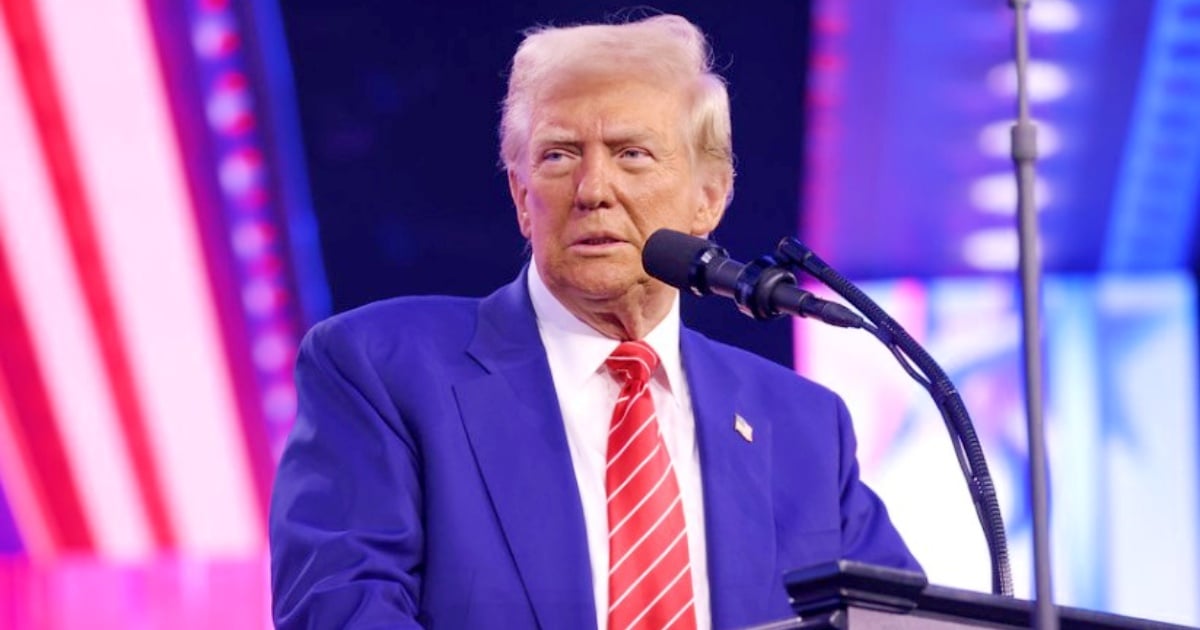
Related videos:
The President of the United States, Donald Trump, has once again issued warnings about the imposition of new tariffs on the European Union (EU), expanding his trade war after implementing similar measures against Mexico, Canada, and China.
Without specifying dates, Trump stated that the implementation of tariffs on European products will occur "fairly soon."
Since his arrival in Maryland from Florida, Trump has been critical of the EU, claiming that the 27 "are really out of line" and that trade between the two powers is unequal.
It says that the European Union has been "abusing the U.S." for years.
"They do not take our cars, they do not take our agricultural products. They take almost nothing, and we take everything from them, millions of cars, huge amounts of food and agricultural products," the leader stated.
The Republican insisted that, although there is no specific timeline, the implementation of the tariffs will be imminent.
His statements reinforce a protectionist trade policy that he has promoted since his first day in the White House, initially against China and its North American neighbors, and now against the EU and the BRICS countries.
Regarding trade with the United Kingdom, Trump acknowledged that "it has exceeded its limits," but he assured that "it can be resolved."
Additionally, he praised the British Prime Minister, Keir Starmer, with whom he has had "several meetings and numerous phone calls," emphasizing a strong bilateral relationship.
EU's reaction to the threat of tariffs
European leaders have expressed their strong opposition to Trump's plans and demonstrated unity in the face of the threat of tariffs.
Before an informal meeting in Brussels on security and international trade, German Chancellor Olaf Scholz stated that the EU could respond with similar measures.
"We must do it, and we will, but we need to proceed in a way that things de-escalate to achieve cooperation," he stated.
For his part, Polish Prime Minister Donald Tusk warned about the serious consequences of a trade war with the U.S.: "We must do everything possible to avoid this completely unnecessary and foolish tariff war."
In the same vein, Denmark's Prime Minister, Mette Frederiksen, expressed her opposition to confrontation among allies, while assuring that Denmark will cooperate with the EU in its response.
"One thing is clear: the EU must act with a united position," reinforced Ireland's Taoiseach, Micheál Martin.
The EU's High Representative for Foreign Affairs, Kaja Kallas, emphasized that a trade war with the U.S. would have no winners and that China would be the primary beneficiary.
"The tariffs will affect employment and prices, weakening the competitiveness of both economies," he explained.
Economic impact and geopolitical consequences
The impact of tariffs will have not only economic consequences but also geopolitical ones.
On Sunday, Trump justified his measures by stating that the EU's trade deficit with the U.S. amounts to 300 billion euros, calling it an "atrocity."
He also mentioned potential tariffs on trade with the United Kingdom, although he clarified that the situation "could be resolved" through negotiations with Starmer.
The EU seeks to strengthen its economic and military independence
As Trump's priorities focus on the national interests of the U.S., the EU seeks to enhance its economic and military independence.
The war in Ukraine has accelerated efforts to reduce dependence on Russian gas, and tensions with Washington could also hasten the industrial and commercial autonomy of the bloc.
At the informal summit in Brussels, EU-U.S. cooperation and military spending will be key topics.
According to the European Commission, the EU needs to invest €500 billion in defense over the next decade, a figure that contrasts sharply with the €8 billion allocated in the 2021-2027 budget.
Keir Starmer will attend the meeting, marking the first visit by a British leader since Brexit.
Its objective is to "recompose" relations with the EU at a time when the bloc seeks to strengthen its global position in response to the challenges posed by Trump and other powers.
With rising trade tensions, Europe is bracing for a potential tariff war that could profoundly transform transatlantic trade and the global economy.
Frequently asked questions about trade tensions between the U.S. and the European Union under the Trump administration
¿Por qué Donald Trump amenaza con imponer aranceles a la Unión Europea?
Donald Trump threatens to impose tariffs on the EU due to the trade deficit that, according to him, harms the United States. He claims that the EU does not purchase enough American products, such as cars and agricultural products, while the U.S. imports large quantities of European goods.
What is the European Union's reaction to the threat of new tariffs from the U.S.?
The European Union has expressed strong opposition to Trump's plans and has shown unity in the face of the threat. European leaders, such as German Chancellor Olaf Scholz, have indicated that they could take similar measures but are seeking to de-escalate the situation in order to achieve cooperation.
What economic impact could Trump's tariffs have on the global economy?
The tariffs imposed by Trump could have significant impacts on the global economy, affecting thousands of products and key business sectors. They could increase the prices of basic goods and reduce the competitiveness of both economies, with China as the main beneficiary of a trade war between the U.S. and the EU.
What measures is the EU looking to implement to counteract Trump's protectionist actions?
The EU seeks to increase its economic and military independence to reduce its reliance on the U.S. and other countries. This includes efforts to lessen dependence on Russian gas and the pursuit of greater industrial and commercial autonomy, especially following the war in Ukraine.
Filed under: